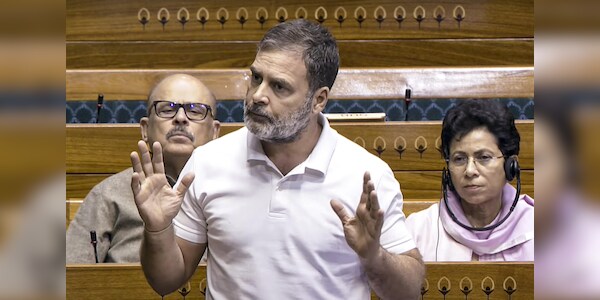
Rahul Gandhi Criticizes Government Over China Land Grab and US Tariffs
The political landscape in India is once again heating up as Congress leader Rahul Gandhi takes a firm stand against the Modi government's handling of two pressing issues: territorial disputes with China and the United States' tariff policies. Gandhi's critique underscores his ongoing efforts to challenge the ruling party's foreign policy and economic strategies, positioning him as a key opposition voice.
Rahul Gandhi's Concerns Over China's Border Incursions
The border tensions between India and China have been a longstanding thorn in bilateral relations. Rahul Gandhi has been vocal about his concerns regarding China's alleged land grabs along the contested borders. According to Gandhi, the government's response to such incursions has been lackluster, compromising India's territorial integrity and emboldening China's aggressive strategies.
In recent parliamentary sessions, Gandhi accused the Modi administration of turning a blind eye to China's activities. He emphasized that the nation's sovereignty is non-negotiable and urged a more proactive diplomatic and military response to safeguard India's borders. His comments resonate with citizens worried about China's expanding geopolitical influence and the potential threat it poses to regional stability.
Economic Implications of US Tariffs
Apart from border issues, Rahul Gandhi has directed his criticism towards the impact of US tariffs on Indian businesses. The trade war initiated by former US President Donald Trump introduced a series of tariffs that adversely affected India's exports, particularly in sectors such as textiles, agricultural produce, and metal products.
Gandhi argues that the government's inability to effectively negotiate with the US has left Indian industries vulnerable. He points out that these tariffs have strained India's trade relationships and hindered the growth of local enterprises. By addressing the economic repercussions of these tariffs, Gandhi aims to highlight the need for robust international trade strategies that protect Indian interests.
Government's Response and Defense
In response to Gandhi's allegations, the ruling Bharatiya Janata Party (BJP) has defended its foreign and economic policies. Government officials assert that negotiations with China are ongoing and emphasize their commitment to protecting India's borders through strategic diplomatic engagements. Furthermore, they stress that military readiness along the India-China border has been bolstered to counter any potential threats.
As for the US trade relationship, BJP leaders maintain that diplomatic channels are open, with continuous efforts to renegotiate unfavorable tariffs. They argue that the current government is focused on enhancing economic self-reliance by boosting domestic manufacturing and reducing dependence on foreign imports.
Analysis of India's Diplomatic Strategy
India's foreign policy has long been characterized by a delicate balancing act—maintaining strong ties with major world powers while asserting its autonomy. The tensions with China and the economic challenges posed by US tariffs highlight the intricacies of this diplomatic balancing act.
Observers suggest that while the Modi government has taken steps to strengthen India's global standing, particularly through initiatives like "Make in India" and the "Atmanirbhar Bharat" campaign, more needs to be done to address specific bilateral tensions. Effective negotiation and strategic partnerships are crucial to navigating these complex geopolitical challenges.
The Role of Public Opinion and Political Discourse
Rahul Gandhi's critique taps into a broader sentiment of concern among the Indian populace regarding national security and economic independence. By voicing these issues, Gandhi not only challenges the government but also aligns himself with the aspirations of a segment of the electorate yearning for stronger leadership in foreign policy matters.
Political discourse in India today is increasingly shaped by such public concerns, with opposition leaders like Gandhi playing a pivotal role in holding the government accountable. The conversations around China's land grab and the US tariff policies are emblematic of larger national debates on how India should position itself on the world stage.
Future Implications for India-US and India-China Relations
The outcome of these interactions with China and the US will significantly impact India's future diplomatic and economic trajectory. As global power dynamics continue to shift, India's role as a regional and potentially global power stands at a crossroads. Navigating these paths wisely, with a focus on national interests, will be crucial.
For India-US relations, resolving tariff disputes will require skillful diplomacy to foster a more balanced and mutually beneficial trade framework. Meanwhile, managing the complex relationship with China will demand a combination of strategic deterrence and constructive dialogue to ensure peace and stability.
Conclusion: A Test of Leadership and Strategy
In his criticism, Rahul Gandhi has highlighted critical challenges facing India today. Whether one aligns with his perspective or not, the issues of national security and economic sovereignty remain central to India's future. How the government addresses these matters will be a testament to its leadership and strategic acumen.
The political and diplomatic steps taken now will shape India's global standing for years to come. As debate continues in the Lok Sabha and beyond, the nation watches closely, hoping for measured actions that uphold India's dignity, sovereignty, and economic prosperity.


